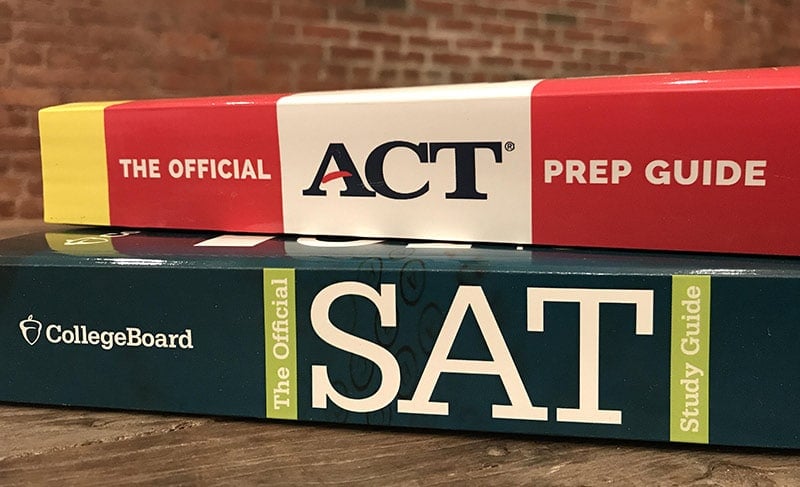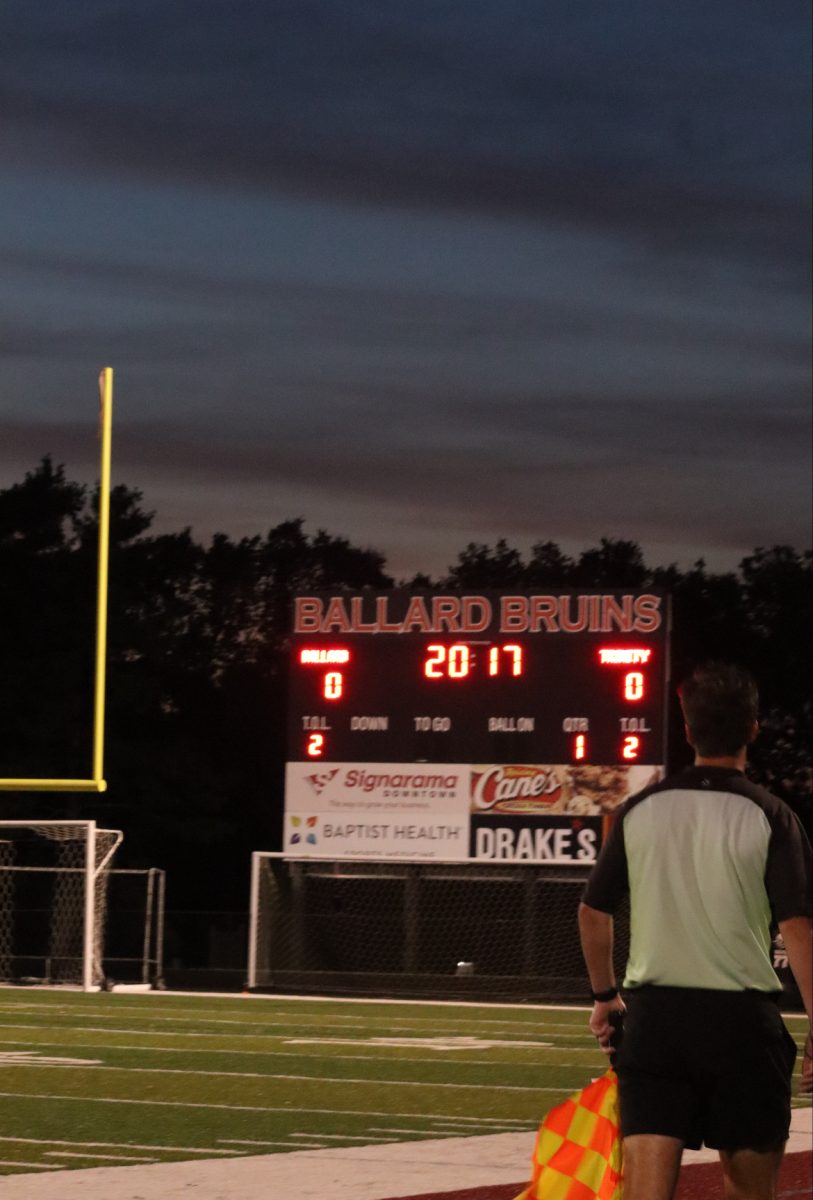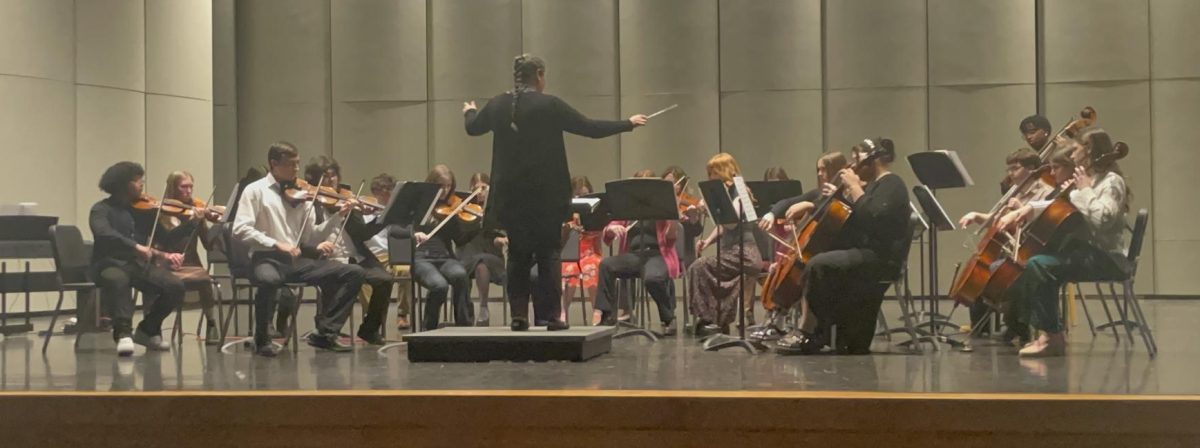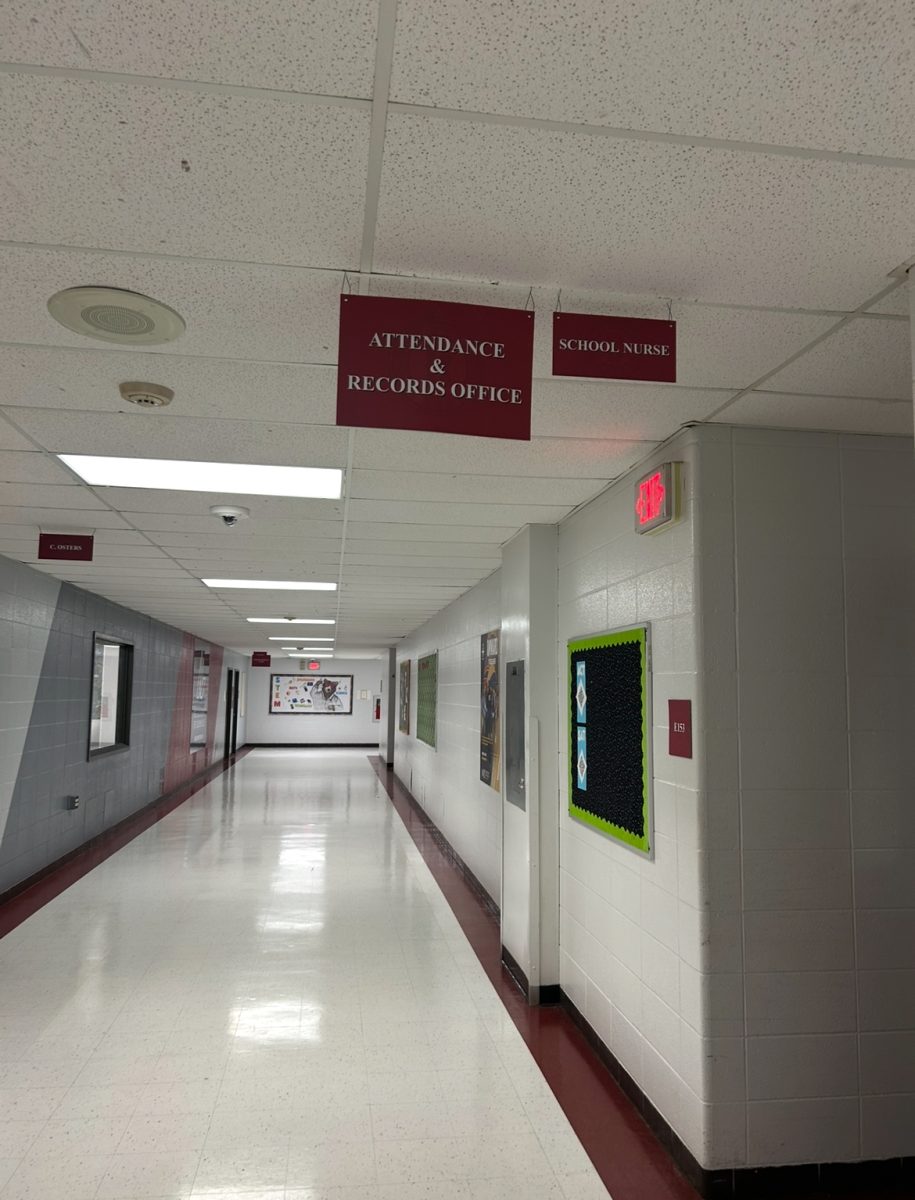One controversy among students in the 2025-2026 school year is Ballard’s new tardy policy. For new students or staff in the building, how has the policy changed? Last year, tardies used to be reset after six weeks. Now, tardies accumulate over the entire school year. Another reason students are unsettled by the new system is that being late to school and being late to class are considered the same.
Dean Curtis, the Dean of Students at Ballard, explains the expectations set with the new policy. “When a student gets three, I have them in a different spreadsheet that I use to organize their classes… I go from class to class and just pull students from class for a hall conference for three tardies. Same thing for six tardies, and then nine tardies is when detention begins,” says Dean Curtis. So what was the reasoning behind the full-year shift? Why do tardies not reset after six weeks? Dean Curtis says, “Last year I had students who were late 200 times.” She continues, “and it’s a problem when communicating with parents because I feel like it doesn’t really show the scope of how chronically tardy some students were.” While it is important to give students and parents a true sense of their tardiness, Mr Wright, an ECE teacher, says “I think they should get a fresh start, you know, it could motivate them a little better to get to class…”
The difficulty for a student to arrive at school not only on time, but in time to get through the traffic, in Ballard and throughout the surrounding area add extra stressors in day-to-day routines. The new tardy policy for the 2025 and 2026 school year takes students by surprise. The school changed their approach, stating three tardies for the entire school year is a detention, anymore will lead to Saturday school, and failure to attend Saturday school results in suspension. Isabel Howes, a student who has stated she is often late, says her opinion on the new policy. “I think that’s stupid. I’m late to school a lot because I have a lot of transportation issues.” Students raise concerns over those who are late due to their personal situation.
Abigaeil Liberal, a Junior class officer, says “…the whole purpose of school is showing up. Why do tardies weigh more than absences?… I could be absent for ten days and just lie and say I was sick or that my grandma died, and it gets excused, but when I actually make an effort to come to school, I have to go to detention and Saturday school.” She continues, “Especially the kids who… have a hard time getting to school, or maybe having to Uber every single day… you’re punishing them for trying to come get their education.” Abigaeil also shares her own experience. “I can speak personally, last year, I would miss first and second period almost every day, my grades definitely dropped. Even though I knew the content, at one point you cannot catch up with assignments,” she says. Another student, Kashdyn Payne, says “For me I feel like it just does not add up, because one, our school just keeps getting bigger and bigger. Two, we keep getting more kids who don’t have buses because this isn’t their home school. It doesn’t make sense.”
The vast size of Ballard’s student body can impact almost every student when it comes down to tardies. Dean Curtis recalls a line out the door after 8:40 in the attendance office last year. The school hopes to reduce the size of this line by implementing these new policies. Dean Curtis explains the outcome that is expected with the new policy. “My goal is I just want students in class on time because I don’t want them interrupting our teachers, which leads to frustrations. I got to support teachers, but also they’re missing instructional time so it’s not good for anyone, really,” she says.
Dean Curtis explains further about the premises of this year’s policy. “So everybody gets free, like eight freebies for the year… I wanted to make sure I built a buffer, so it wasn’t just like immediately detention since there’s seven periods a day. It’s a lot of class changes especially for freshmen, sophomores who are getting used to the building.” Students find it somewhat difficult to get to class on time, especially if it’s their first time in a building this size. One freshman, Macy Aulick, says “Most of the time I do [have time to get to class], unless they’re across buildings. And then I feel like I’m rushing down the hallway.” Even upper classmen who know the building find issues with the new policy. “I think it sucks, and it’s probably going to lead to me getting more than 1 detention,” says Major Arvin.
“It also doesn’t help that we have so many students,” says Dean Curtis. Is the quantity of students in the hallway a factor in tardies? It has been noted this year how many more students have been added to this year’s student body. Ballard is seemingly bursting at the seams of its allotted capacity. Policies like the 2025-2026 tardy policy are a reflection of the schools solution to fixing the problems caused by a significant increase in student body size.

























